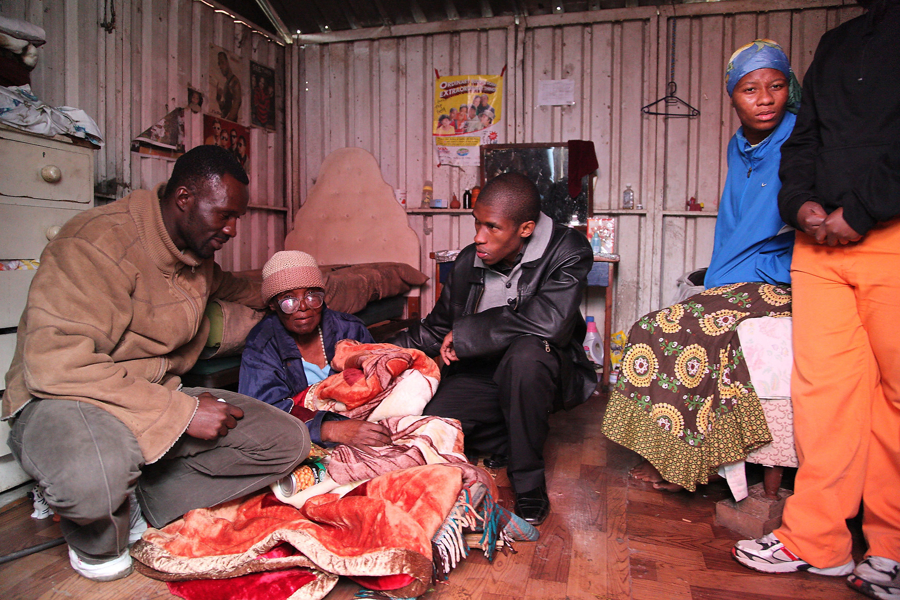
DURBAN, South Africa (BP)–Thick mud clings to the shoes of pastor Xolani (Ko-lan-ee) Klaas and his church members as they walk through an informal settlement far from the World Cup venues in South Africa.
There are few visitors to the informal settlements, and the residents are wary of strangers. Most are members of the Zulu people group, and a large percentage are hiding from their families in the villages. Originally they came to the city to find a job or go to school but were forced into the shantytowns when their money ran out.
“They do not want to be found,” one of the church members says in visiting the Durban-area Newlands East settlement with Klaas. The residents refuse to return to their families empty-handed, and the only place they can live is in the informal settlements.
The needs are overwhelming in these settlements, but Klaas and other Zulu Christians are seeking to make a difference in the lives of the people in these “unseen” areas.
In the mud, Klaas and his team slip as they walk up and down the hills past tiny shacks constructed of scrap metal, tarps and cloth inadequately providing shelter for entire families from the cool, wet weather. Yet amid the struggle of everyday life, the smiling faces of residents conversing with one another reveal a measure of joy and happiness in their community.
Efforts in evangelism in the informal settlements can be compared to how Jesus did ministry, Klaas ntoes, because the needs of the people are so immediate. “People, if they are hungry, will not listen because their primary needs have not been met,” the pastor says.
Some of the people know there is a God, Klaas says, but “they [do not] know that one can make a decision to follow Christ, to commit your life to Christ.”
The residents in Newlands East struggle to find food, water and other necessities. Klaas’ church, Hope Restoration Baptist Church, has started taking food and blanket packets to individuals in the settlement and talking with them about coming to church.
A 92-year-old woman receives a blanket, and her eyes shine with gratitude and amazement as she unwraps it and rubs the soft, thick material between her fingers.
After giving her the blanket, Klaas prays for her, that she would have strength, healing and wisdom. He emphasizes that all providence and glory go to God and encourages her and her family to attend the Hope Restoration’s service on Sunday morning.
Leaving the house, the team notices tiny wires strewn across the ground and suspended in the surrounding bushes, looking much like spider webs. A closer examination reveals the wires carry electricity to several shacks, but they pose a danger because children who have no shoes can be electrocuted if they step on the exposed wires.
In the settlement, the smells of decomposing trash, outhouses and sludge thicken the air, making it difficult to breathe at times. Plastic bags, bottles and rotten food litter the ground. Residents dodge in and out of their shacks, curious about the visitors but also hesitant, knowing that it is easier for many people walking past to ignore the poverty in the settlements.
But Klaas is confident in the task he has undertaken, saying, “This is right. I have to follow God’s plan for my life.”
He’s also confident God is at work. “The same thing that happened in the Book of Acts, that is happening in South Africa right now,” he declares. “There’s so much of a revival. You go everywhere, Christians are standing up. They are … evangelizing. They can’t keep quiet, talking about Christ.”
–30–
Evelyn Adamson is an intern writer for the International Mission Board’s global communication team on assignment in South Africa covering the events, matches and ministries related to the World Cup.
















